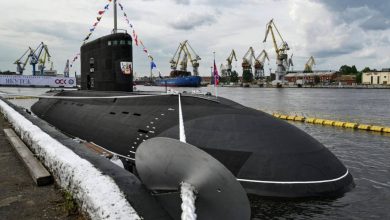Energy Minister: Türkiye rapidly becoming global player in mining

Türkiye is making swift progress toward becoming a global actor in mining, which is now one of the cornerstones of economic security, Energy and Natural Resources Alparslan Bayraktar said.
Bayraktar’s remarks came on the sidelines of the Istanbul Natural Resources Summit (INRES 2025), hosted by Türkiye’s leading media group and Daily Sabah’s parent company, Turkuvaz Media, under the auspices of the Energy and Natural Resources Ministry.
The event in Istanbul gathered senior energy and mining officials from at least 14 countries and focused on international cooperation in critical minerals, hydrocarbons and long-term resource security amid the global energy transition.
Moderating a ministerial panel titled “Mining in the Energy Transition,” Bayraktar emphasized that state-owned entities such as Eti Maden and MTA International are being transformed into key public institutions that promote responsible mining, build technical capacity and foster international partnerships.
“Eti Maden, which manages a significant portion of the world’s boron reserves, is prioritizing value-added production and is rapidly advancing toward becoming a global player in rare earth element processing,” he said. “MTA International, our other key institution, represents a new approach focused on exploration, innovation and international cooperation.”
“We have transformed these two companies into public actors that not only focus on mineral production but also promote responsible mining, enhance technical capacity and develop models open to international partnerships,” he noted.
Critical minerals drive global shifts
Highlighting the accelerating global transformation in the energy sector, Bayraktar stressed that this is leading to a significant increase in demand for critical and strategic minerals.
These resources are essential for clean energy technologies, battery systems, electric vehicles, digital infrastructure and industrial modernization.
Bayraktar explained that deficiencies in supply infrastructure, financing gaps and shortages of technical knowledge and workforce make access to and sustainable production of these minerals significantly more challenging and complex.
He also noted that mining is no longer merely about extracting underground resources.
“This sector has become one of the fundamental pillars of economic security, industrialization strategies and regional influence. Beyond that, access to these critical minerals has also become a decisive factor in international relations,” he stated.
‘No country can meet global demands alone’
Bayraktar also underscored the importance of political will, stability, support and commitment in attracting investment to the mining sector.
“International cooperation is also extremely important and critical. Regardless of how rich a country’s resources are or how advanced its industry may be, no single nation can meet the demands of the global energy transition alone,” he stated.
“That’s why strong collaboration at every level is essential. What is needed is not just financing or capital, but also capacity building, knowledge sharing and fair, inclusive and resilient long-term partnerships that will lead us to true sustainable development,” the minister added.
Niger’s collaboration with Türkiye
On the sidelines of the INRES 2025, Nigerien Minister of Mines Ousmane Abarchi confirmed that the country plans to renew its partnership with Türkiye’s MTA by the end of the year.
“Since 2020, we have had several projects with the MTA, and they have been granted licenses in various areas, particularly gold exploration. Our research is now nearing completion, and we are moving into the gold extraction phase,” said Abarchi.
In recent years, Niger has been working to ensure that its natural resources and wealth benefit the people, the minister said. “For years, our natural resources served the interests of certain other countries. However, for the past two years, we have declared national sovereignty over them,” he noted.
Abarchi went on to underscore that Niger is diversifying its mining partnerships and launching new initiatives.
“We have a significant collaboration with Türkiye in the field of mining. We will strengthen and deepen this cooperation further. Our goal is to implement new initiatives in our country,” he said.
Hungary’s crucial cooperation with Türkiye
Hungarian Deputy Minister of Foreign Affairs and Trade Boglarka Illes stated that her country has historically had limited energy resources, which is why they consider energy security and sustainability to be of utmost importance.
Illes emphasized their desire to strengthen these two areas, noting that developing international cooperation and participating in regional development programs are crucial priorities.
“Renewing, revitalizing and expanding our collaboration with Türkiye is very important to us,” she said.
Earlier this week, Turkish Petroleum Corporation (TPAO) signed an agreement with Hungary’s MOL Group for oil and gas exploration in two Hungarian regions, signaling deeper bilateral cooperation in upstream energy development.
“They have decided to establish a joint venture company by working together. Oil and mineral exploration activities will be conducted within Hungary’s borders,” Illes stated.
Saudi Arabia ramps up diversification
Khalid al-Mudaifer, Saudi Arabia’s deputy minister of industry and mineral resources, shared that the kingdom is implementing its mining strategy as part of its economic diversification plan.
“Under our Vision 2030 framework, we have been successfully implementing the mining strategy we launched in 2018,” al-Mudaifer noted.
He emphasized that Saudi Arabia cannot rely solely on oil and gas, noting, “Back in 2018, we had only three or four mining companies – today, that number has reached 132. Through our national program, we are supporting both domestic and international activities.”
Al-Mudaifer highlighted that over $1 billion has been invested in the country’s geological mapping, saying, “We have completed 5% of it. We have also prepared a competitive mining law aimed at increasing investor confidence.”
He pointed out that despite the high mining potential in regions including Africa, Central Asia and Türkiye, development remains insufficient. “These areas hold 30% of the world’s resources, yet investment is lacking. More resources need to be allocated to ensure supply chain security,” he stated.
Somalia ready to tap natural resources
Somali Minister of Petroleum and Mineral Resources Dahir Shire Mohamed announced his country’s readiness to begin extracting its natural resources.
Mohamed emphasized that Somalia has significant potential in the mining sector, stating that exploration efforts have already begun and that an agreement has been signed with Türkiye in this regard.
Highlighting the Somali government’s objectives in this field, he stated, “We have a long-term vision for our natural resources. Somalia will soon begin extracting its own resources.”
Libya opens doors to investors
Libyan Minister of Industry and Minerals Ahmed Abu-Heisa stated that the country has regions rich in minerals and that its investment regulations are highly flexible and favorable.
Abu-Heisa emphasized the importance of mining investments, noting that Libya has various mining programs and is updating its geological maps.
“We are open to foreign investors and technology transfer in this field. We can collaborate with Türkiye and brotherly states. We are open to technology and financing. We see a real opportunity for investors,” he noted.
“We would be happy to welcome investment delegations or technical teams interested in investing in Libya. We invite you to come and evaluate the opportunities Libya offers with your own eyes.”
Source: DAily Sabah





